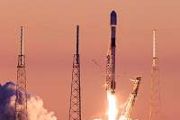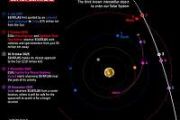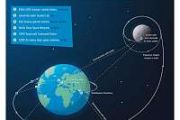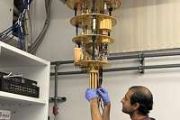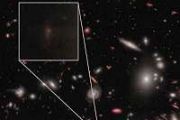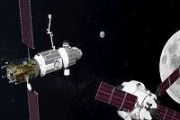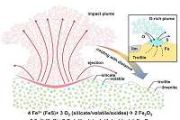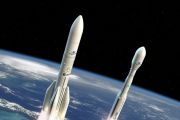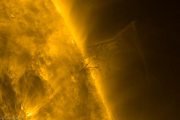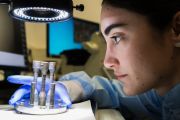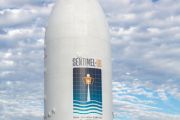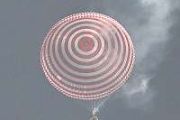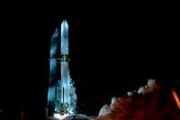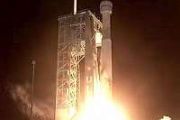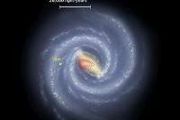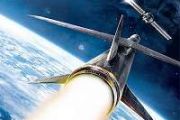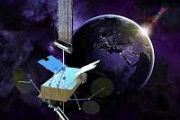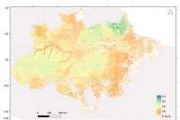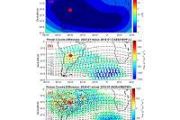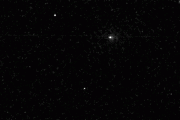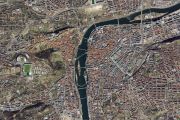
Copernical Team
An 800-year-old mathematical trick could help with lunar navigation
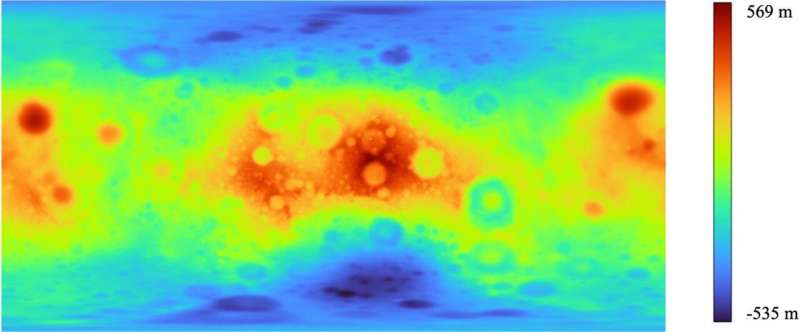
Kamilla Cziráki, a geophysics student at the Faculty of Science of Eötvös Loránd University (ELTE), has taken a new approach to researching the navigation systems that can be used on the surface of the moon to plan future journeys.
Working with Professor Gábor Timár, head of the Department of Geophysics and Space Sciences, Cziráki calculated the parameters used in the Earth's GPS system for the moon using the method of mathematician Fibonacci, who lived 800 years ago. Their findings have been published in the journal Acta Geodaetica et Geophysica.
Now, as humanity prepares to return to the moon after half a century, the focus is on possible methods of lunar navigation.
NASA power outage temporarily halts contact with space station
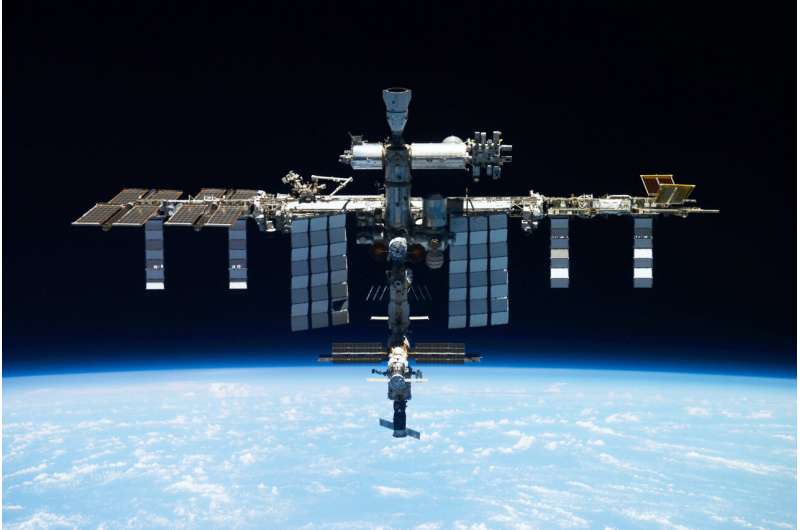
A NASA power outage disrupted communication between Mission Control and the International Space Station on Tuesday.
Mission Control couldn't send commands to the station and talk with the seven astronauts in orbit. The power outage hit as upgrade work was underway in the building at Houston's Johnson Space Center.
Space station program manager Joel Montalbano said neither the astronauts nor station were ever in any danger and that backup control systems took over within 90 minutes.
Orbiting astronaut oversees robot team on Earth
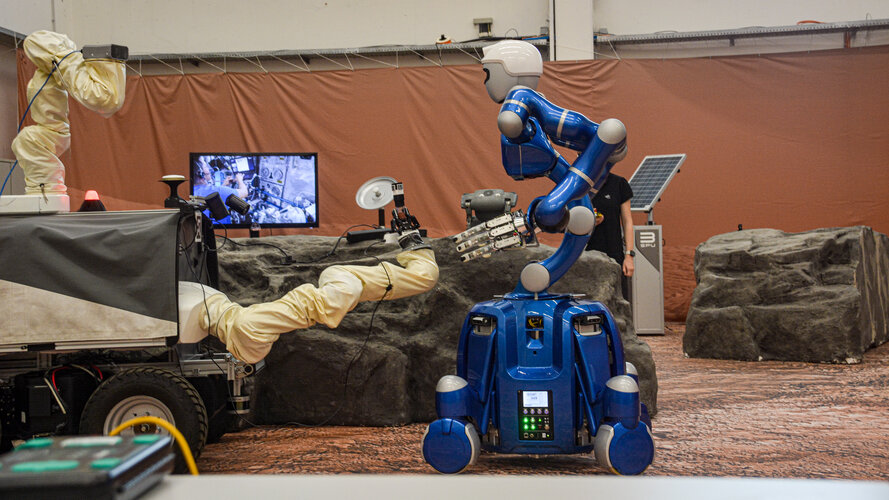
Astronaut Frank Rubio aboard the International Space Station collaborated with a small team of robots on Earth to accomplish a complex task – a first test of a new approach to combine human and robotic capabilities for our return to the Moon and beyond.
Teams selected to teach AI Agents to interact with people and learn
 As part of DARPA's Environment-driven Conceptual Learning (ECOLE) program, several university teams and industry performers will attempt to create artificial intelligence (AI) agents capable of continually learning from linguistic and visual input. Resulting agents would be able to collaborate with humans to help them produce analyses of image, video, and multimedia documents during time-sensiti
As part of DARPA's Environment-driven Conceptual Learning (ECOLE) program, several university teams and industry performers will attempt to create artificial intelligence (AI) agents capable of continually learning from linguistic and visual input. Resulting agents would be able to collaborate with humans to help them produce analyses of image, video, and multimedia documents during time-sensiti Consortium explores energy-efficient electronics and photonics
World's first methane-fueled rocket makes history, courtesy of LandSpace and GCL
 LandSpace, in partnership with GCL System Integration Technology Co., Ltd. (GCL), has successfully launched the world's first methane-powered rocket, Zhuque-2 (ZQ-2 Y2), into orbit. The launch took place at 9 a.m. (0100 GMT) from the Jiuquan Satellite Launch Center in northwest China.
GCL, a global pioneer in renewable energy services, was instrumental in the development of Zhuque-2. This
LandSpace, in partnership with GCL System Integration Technology Co., Ltd. (GCL), has successfully launched the world's first methane-powered rocket, Zhuque-2 (ZQ-2 Y2), into orbit. The launch took place at 9 a.m. (0100 GMT) from the Jiuquan Satellite Launch Center in northwest China.
GCL, a global pioneer in renewable energy services, was instrumental in the development of Zhuque-2. This Rocket Lab set to boost Capella's satellite constellation with upcoming launch
 Rocket Lab USA, Inc. (Nasdaq: RKLB) has scheduled its next Electron launch during a window that opens 28 July 2023 NZST/UTC.
The mission, named 'We Love the Nightlife,' is slated to commence during a launch window that opens on July 28, 2023 NZST/UTC. The launch site will be Rocket Lab Launch Complex 1, positioned on New Zealand's picturesque Mahia Peninsula.
American space tech firm
Rocket Lab USA, Inc. (Nasdaq: RKLB) has scheduled its next Electron launch during a window that opens 28 July 2023 NZST/UTC.
The mission, named 'We Love the Nightlife,' is slated to commence during a launch window that opens on July 28, 2023 NZST/UTC. The launch site will be Rocket Lab Launch Complex 1, positioned on New Zealand's picturesque Mahia Peninsula.
American space tech firm Kuaizhou 1A launches satellites into orbit
 China's state-owned China Aerospace Science and Industry Corp (CASIC) successfully launched a Kuaizhou 1A carrier rocket from the Jiuquan Satellite Launch Center, located in China's northwestern desert, on Thursday morning. The mission's primary objective was to place four new weather satellites into orbit, enhancing the country's atmospheric data collection capabilities.
The Kuaizhou 1A,
China's state-owned China Aerospace Science and Industry Corp (CASIC) successfully launched a Kuaizhou 1A carrier rocket from the Jiuquan Satellite Launch Center, located in China's northwestern desert, on Thursday morning. The mission's primary objective was to place four new weather satellites into orbit, enhancing the country's atmospheric data collection capabilities.
The Kuaizhou 1A, Groundbreaking method to speed up aerosol retrieval data from Chinese optical satellite
 A groundbreaking method for rapidly obtaining detailed observations of atmospheric aerosols via a new Chinese optical satellite has been proposed by a team of scientists. Aerosols, atmospheric particles that have a significant impact on our planet's climate system, influence solar and terrestrial radiation, and modify cloud properties.
While the launch of new satellite sensors often comes
A groundbreaking method for rapidly obtaining detailed observations of atmospheric aerosols via a new Chinese optical satellite has been proposed by a team of scientists. Aerosols, atmospheric particles that have a significant impact on our planet's climate system, influence solar and terrestrial radiation, and modify cloud properties.
While the launch of new satellite sensors often comes Thales announces Quantum-Ready Cybersecurity measures for Galileo
 Thales, the French multinational company, has affirmed its central role in providing cybersecurity solutions for Galileo, the global navigation satellite system (GNSS) that provides geolocation services. Thales, leading a consortium which includes Italian firm Leonardo, is tasked with expanding the G2G IOV SECMON project's security monitoring scope, incorporating new assets into the G2G system.
Thales, the French multinational company, has affirmed its central role in providing cybersecurity solutions for Galileo, the global navigation satellite system (GNSS) that provides geolocation services. Thales, leading a consortium which includes Italian firm Leonardo, is tasked with expanding the G2G IOV SECMON project's security monitoring scope, incorporating new assets into the G2G system. 
